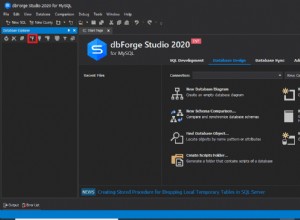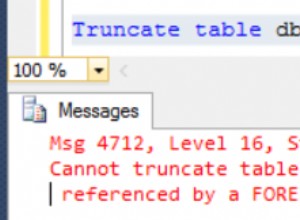Posso estar um pouco fora da sintaxe, mas essa consulta parametrizada (todos os ? pegue o '1' da pergunta original) deve ser executado rapidamente, basicamente 2 pesquisas B-Tree [supondo que o número seja indexado].
SELECT * FROM
(
(SELECT id, number FROM t WHERE number >= ? ORDER BY number LIMIT 1) AS above
UNION ALL
(SELECT id, number FROM t WHERE number < ? ORDER BY number DESC LIMIT 1) as below
)
ORDER BY abs(?-number) LIMIT 1;
O plano de consulta para isso com uma tabela de ~5e5 linhas (com um índice em
number ) se parece com isso:psql => explain select * from (
(SELECT id, number FROM t WHERE number >= 1 order by number limit 1)
union all
(select id, number from t where number < 1 order by number desc limit 1)
) as make_postgresql_happy
order by abs (1 - number)
limit 1;
QUERY PLAN
--------------------------------------------------------------------------------------------------------------
Limit (cost=0.24..0.24 rows=1 width=12)
-> Sort (cost=0.24..0.24 rows=2 width=12)
Sort Key: (abs((1::double precision - public.t.number)))
-> Result (cost=0.00..0.23 rows=2 width=12)
-> Append (cost=0.00..0.22 rows=2 width=12)
-> Limit (cost=0.00..0.06 rows=1 width=12)
-> Index Scan using idx_t on t (cost=0.00..15046.74 rows=255683 width=12)
Index Cond: (number >= 1::double precision)
-> Limit (cost=0.00..0.14 rows=1 width=12)
-> Index Scan Backward using idx_t on t (cost=0.00..9053.67 rows=66136 width=12)
Index Cond: (number < 1::double precision)
(11 rows)




